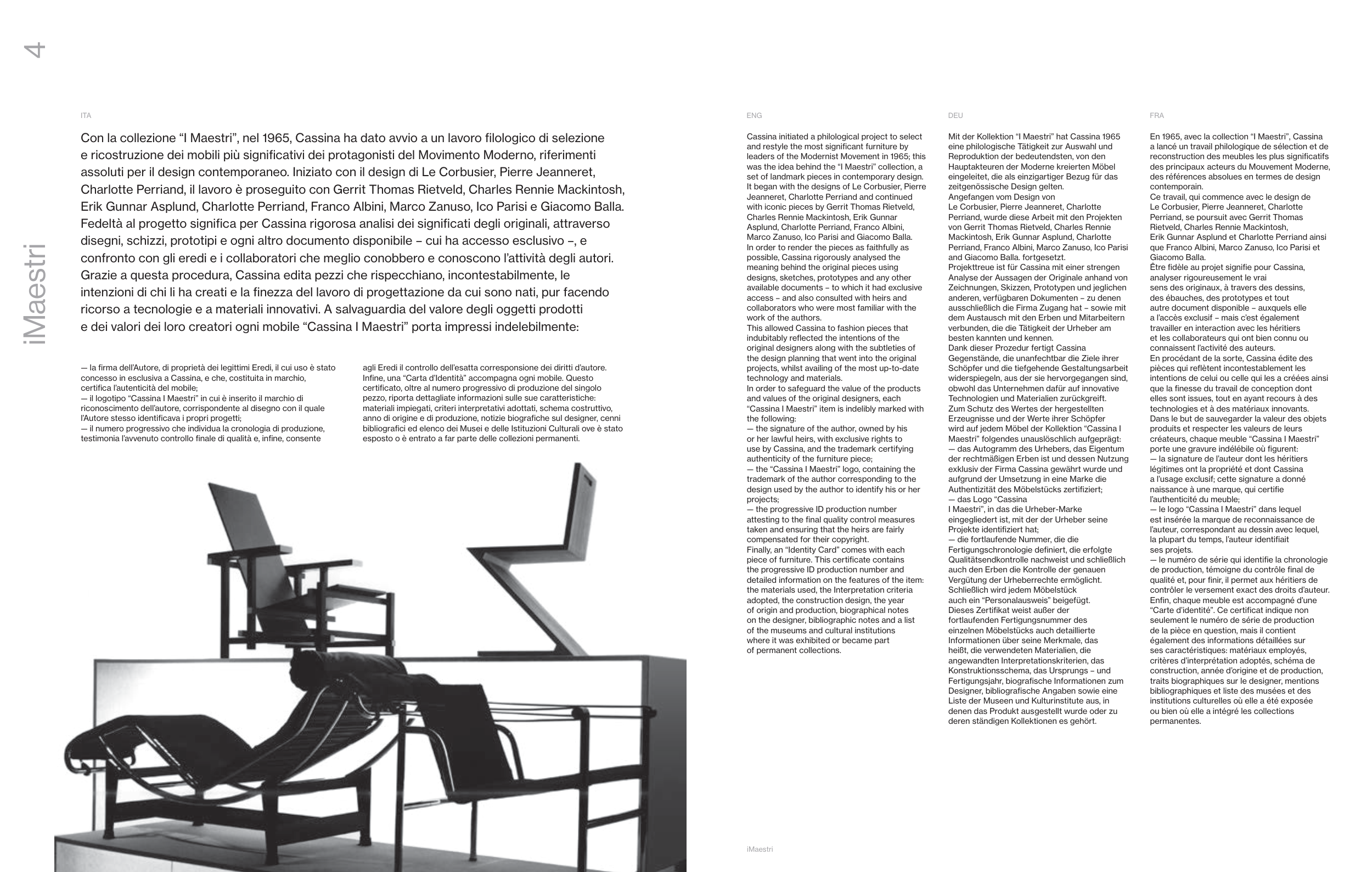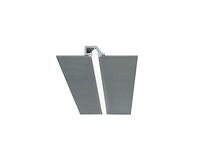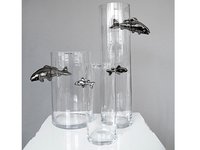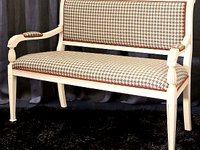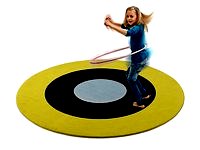DEU
ENG
FRA
Mit der Kollektion “I Maestri” hat Cassina 1965
eine philologische Tätigkeit zur Auswahl und
Reproduktion der bedeutendsten, von den
Hauptakteuren der Moderne kreierten Möbel
eingeleitet, die als einzigartiger Bezug für das
zeitgenössische Design gelten.
Angefangen vom Design von
Le Corbusier, Pierre Jeanneret, Charlotte
Perriand, wurde diese Arbeit mit den Projekten
von Gerrit Thomas Rietveld, Charles Rennie
Mackintosh, Erik Gunnar Asplund, Charlotte
Perriand, Franco Albini, Marco Zanuso, Ico Parisi
and Giacomo Balla. fortgesetzt.
Projekttreue ist für Cassina mit einer strengen
Analyse der Aussagen der Originale anhand von
Zeichnungen, Skizzen, Prototypen und jeglichen
anderen, verfügbaren Dokumenten – zu denen
ausschließlich die Firma Zugang hat – sowie mit
dem Austausch mit den Erben und Mitarbeitern
verbunden, die die Tätigkeit der Urheber am
besten kannten und kennen.
Dank dieser Prozedur fertigt Cassina
Gegenstände, die unanfechtbar die Ziele ihrer
Schöpfer und die tiefgehende Gestaltungsarbeit
widerspiegeln, aus der sie hervorgegangen sind,
obwohl das Unternehmen dafür auf innovative
Technologien und Materialien zurückgreift.
Zum Schutz des Wertes der hergestellten
Erzeugnisse und der Werte ihrer Schöpfer
wird auf jedem Möbel der Kollektion “Cassina I
Maestri” folgendes unauslöschlich aufgeprägt:
— das Autogramm des Urhebers, das Eigentum
der rechtmäßigen Erben ist und dessen Nutzung
exklusiv der Firma Cassina gewährt wurde und
aufgrund der Umsetzung in eine Marke die
Authentizität des Möbelstücks zertifiziert;
— das Logo “Cassina
I Maestri”, in das die Urheber-Marke
eingegliedert ist, mit der der Urheber seine
Projekte identifiziert hat;
— die fortlaufende Nummer, die die
Fertigungschronologie definiert, die erfolgte
Qualitätsendkontrolle nachweist und schließlich
auch den Erben die Kontrolle der genauen
Vergütung der Urheberrechte ermöglicht.
Schließlich wird jedem Möbelstück
auch ein “Personalausweis” beigefügt.
Dieses Zertifikat weist außer der
fortlaufenden Fertigungsnummer des
einzelnen Möbelstücks auch detaillierte
Informationen über seine Merkmale, das
heißt, die verwendeten Materialien, die
angewandten Interpretationskriterien, das
Konstruktionsschema, das Ursprungs – und
Fertigungsjahr, biografische Informationen zum
Designer, bibliografische Angaben sowie eine
Liste der Museen und Kulturinstitute aus, in
denen das Produkt ausgestellt wurde oder zu
deren ständigen Kollektionen es gehört.
Cassina initiated a philological project to select
and restyle the most significant furniture by
leaders of the Modernist Movement in 1965; this
was the idea behind the “I Maestri” collection, a
set of landmark pieces in contemporary design.
It began with the designs of Le Corbusier, Pierre
Jeanneret, Charlotte Perriand and continued
with iconic pieces by Gerrit Thomas Rietveld,
Charles Rennie Mackintosh, Erik Gunnar
Asplund, Charlotte Perriand, Franco Albini,
Marco Zanuso, Ico Parisi and Giacomo Balla.
In order to render the pieces as faithfully as
possible, Cassina rigorously analysed the
meaning behind the original pieces using
designs, sketches, prototypes and any other
available documents – to which it had exclusive
access – and also consulted with heirs and
collaborators who were most familiar with the
work of the authors.
This allowed Cassina to fashion pieces that
indubitably reflected the intentions of the
original designers along with the subtleties of
the design planning that went into the original
projects, whilst availing of the most up-to-date
technology and materials.
In order to safeguard the value of the products
and values of the original designers, each
“Cassina I Maestri” item is indelibly marked with
the following:
— the signature of the author, owned by his
or her lawful heirs, with exclusive rights to
use by Cassina, and the trademark certifying
authenticity of the furniture piece;
— the “Cassina I Maestri” logo, containing the
trademark of the author corresponding to the
design used by the author to identify his or her
projects;
— the progressive ID production number
attesting to the final quality control measures
taken and ensuring that the heirs are fairly
compensated for their copyright.
Finally, an “Identity Card” comes with each
piece of furniture. This certificate contains
the progressive ID production number and
detailed information on the features of the item:
the materials used, the Interpretation criteria
adopted, the construction design, the year
of origin and production, biographical notes
on the designer, bibliographic notes and a list
of the museums and cultural institutions
where it was exhibited or became part
of permanent collections.
En 1965, avec la collection “I Maestri”, Cassina
a lancé un travail philologique de sélection et de
reconstruction des meubles les plus significatifs
des principaux acteurs du Mouvement Moderne,
des références absolues en termes de design
contemporain.
Ce travail, qui commence avec le design de
Le Corbusier, Pierre Jeanneret, Charlotte
Perriand, se poursuit avec Gerrit Thomas
Rietveld, Charles Rennie Mackintosh,
Erik Gunnar Asplund et Charlotte Perriand ainsi
que Franco Albini, Marco Zanuso, Ico Parisi et
Giacomo Balla.
Être fidèle au projet signifie pour Cassina,
analyser rigoureusement le vrai
sens des originaux, à travers des dessins,
des ébauches, des prototypes et tout
autre document disponible – auxquels elle
a l’accès exclusif – mais c’est également
travailler en interaction avec les héritiers
et les collaborateurs qui ont bien connu ou
connaissent l’activité des auteurs.
En procédant de la sorte, Cassina édite des
pièces qui reflètent incontestablement les
intentions de celui ou celle qui les a créées ainsi
que la finesse du travail de conception dont
elles sont issues, tout en ayant recours à des
technologies et à des matériaux innovants.
Dans le but de sauvegarder la valeur des objets
produits et respecter les valeurs de leurs
créateurs, chaque meuble “Cassina I Maestri”
porte une gravure indélébile où figurent:
— la signature de l’auteur dont les héritiers
légitimes ont la propriété et dont Cassina
a l’usage exclusif; cette signature a donné
naissance à une marque, qui certifie
l’authenticité du meuble;
— le logo “Cassina I Maestri” dans lequel
est insérée la marque de reconnaissance de
l’auteur, correspondant au dessin avec lequel,
la plupart du temps, l’auteur identifiait
ses projets.
— le numéro de série qui identifie la chronologie
de production, témoigne du contrôle final de
qualité et, pour finir, il permet aux héritiers de
contrôler le versement exact des droits d’auteur.
Enfin, chaque meuble est accompagné d’une
“Carte d’identité”. Ce certificat indique non
seulement le numéro de série de production
de la pièce en question, mais il contient
également des informations détaillées sur
ses caractéristiques: matériaux employés,
critères d’interprétation adoptés, schéma de
construction, année d’origine et de production,
traits biographiques sur le designer, mentions
bibliographiques et liste des musées et des
institutions culturelles où elle a été exposée
ou bien où elle a intégré les collections
permanentes.
ITA
— la firma dell’Autore, di proprietà dei legittimi Eredi, il cui uso è stato
concesso in esclusiva a Cassina, e che, costituita in marchio,
certifica l’autenticità del mobile;
— il logotipo “Cassina I Maestri” in cui è inserito il marchio di
riconoscimento dell’autore, corrispondente al disegno con il quale
l’Autore stesso identificava i propri progetti;
— il numero progressivo che individua la cronologia di produzione,
testimonia l’avvenuto controllo finale di qualità e, infine, consente
Con la collezione “I Maestri”, nel 1965, Cassina ha dato avvio a un lavoro filologico di selezione
e ricostruzione dei mobili più significativi dei protagonisti del Movimento Moderno, riferimenti
assoluti per il design contemporaneo. Iniziato con il design di Le Corbusier, Pierre Jeanneret,
Charlotte Perriand, il lavoro è proseguito con Gerrit Thomas Rietveld, Charles Rennie Mackintosh,
Erik Gunnar Asplund, Charlotte Perriand, Franco Albini, Marco Zanuso, Ico Parisi e Giacomo Balla.
Fedeltà al progetto significa per Cassina rigorosa analisi dei significati degli originali, attraverso
disegni, schizzi, prototipi e ogni altro documento disponibile – cui ha accesso esclusivo –, e
confronto con gli eredi e i collaboratori che meglio conobbero e conoscono l’attività degli autori.
Grazie a questa procedura, Cassina edita pezzi che rispecchiano, incontestabilmente, le
intenzioni di chi li ha creati e la finezza del lavoro di progettazione da cui sono nati, pur facendo
ricorso a tecnologie e a materiali innovativi. A salvaguardia del valore degli oggetti prodotti
e dei valori dei loro creatori ogni mobile “Cassina I Maestri” porta impressi indelebilmente:
agli Eredi il controllo dell’esatta corresponsione dei diritti d’autore.
Infine, una “Carta d’Identità” accompagna ogni mobile. Questo
certificato, oltre al numero progressivo di produzione del singolo
pezzo, riporta dettagliate informazioni sulle sue caratteristiche:
materiali impiegati, criteri interpretativi adottati, schema costruttivo,
anno di origine e di produzione, notizie biografiche sul designer, cenni
bibliografici ed elenco dei Musei e delle Istituzioni Culturali ove è stato
esposto o è entrato a far parte delle collezioni permanenti.
iMaestri
4
iMaestri


